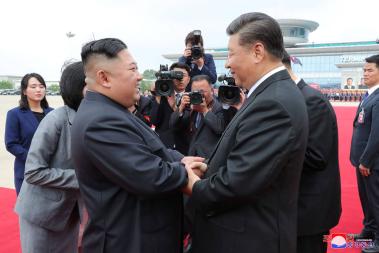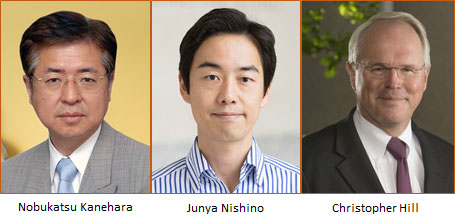Panel: U.S., Japan and South Korea roles in Maintaining a Free and Open Indo-Pacific
Japanese and American professors on March 16 discussed the tensions and challenges arising in the Indo-Pacific region, focused on South Korea and its new conservative government and the nuclear ambition of North Korea.
Key Points
From March 16 Webinar: U.S., Japan and South Korea roles in Maintaining a Free and Open Indo-Pacific
- The invasion of Ukraine is a shock – even in Asia. A permanent member of the UN Security Council just invaded its neighbor with no provocation. How will the Security Council operate when one member with veto status acted with such aggression? We need to think outside the box because they box is no longer there.
- Democracies all have a role to play and an important role is to put aside small differences and realize that this attack on Ukraine is an attack on us all.
- China doesn’t want to be seen as a criminal. We have to somehow engage China.
- One of the unintended consequences of Mr. Putin’s gross mistake is that the U.S. and Europeans have never felt so close together. It will be replicated in other parts of the world – including with the Republic of Korea and Japan.
- With the sheer number, militarily, of the South Koreans, the Japanese and the Americans, we outnumber the Chinese PLA [People’s Liberation Army]. With South Korea, Japan and the U.S. can safely engage with the Chinese and defend the international order.
- Will South Korea’s incoming president Yoon manage the country’s challenges in an a la carte fashion, or play a leading role in addressing Indo-Pacific issues? The expectation is that Yoon will try to strengthen ties with Japan, but the domestic audience in both countries remains strongly resistant to mending the relationship.
In a panel moderated by Professor Floyd Ciruli, Director of the Crossley Center, the participants were:
- Nobukatsu Kanehara – Senior Advisor to the Asia Group, Tokyo; Assistant Chief Cabinet Secretary to Prime Minister Abe; Deputy Secretary-General of the National Security Secretariat
- Junya Nishino – Professor, Director of Center for Contemporary Korean Studies, Keio University
- Christopher Hill – Newly confirmed ambassador to Serbia, former ambassador to Korea, head of U.S. Delegation to Six-Party Talks
The Crossley Center for Public Opinion Research and the Consulate-General of Japan in Denver, with the University of Denver’s Josef Korbel School of International Studies, sponsored the event.




